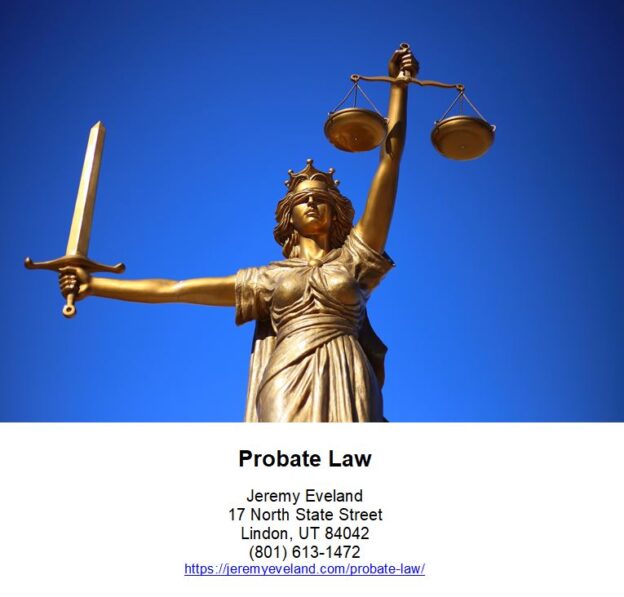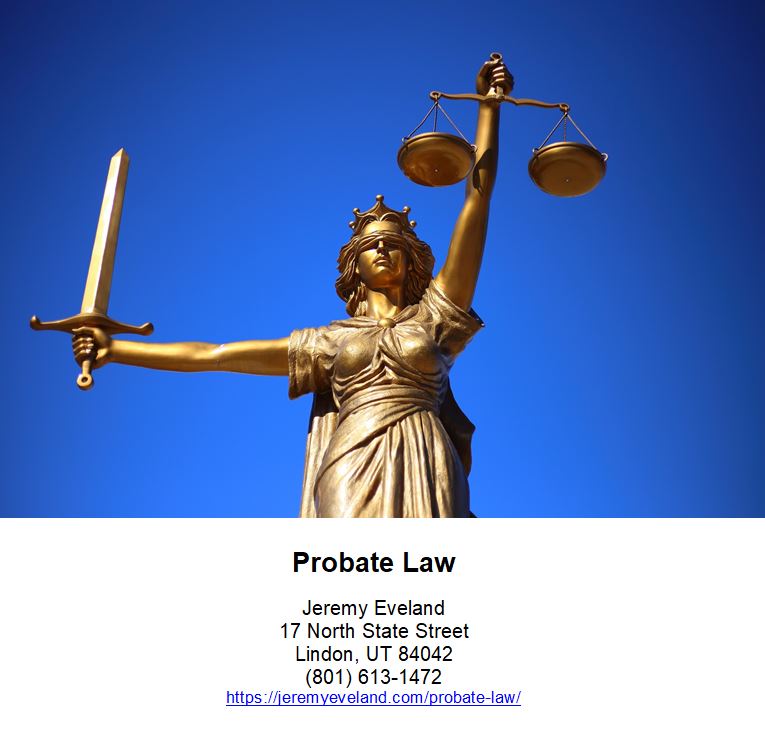-
Attorney at Law
- Introduction
- Asset Protection Planning: What You Need to Know
- Asset Protection Planning: What You Need to Know About Utah’s Trust Statute
- Asset Protection Planning: Utilizing Limited Liability Entities
- Asset Protection Planning: Limiting Future Creditors
- The Supreme Court and Asset Protection: What You Need to Know
- How to Create an Irrevocable Trust for Asset Protection
- Exploring the Benefits of Utah Domestic Asset Protection Trust
- Is Asset Protection Right For Your Business?
- Is Asset Protection Right For Your Personal Estate Plan?
- Asset Protection Planning: Working With a Lawyer to Protect Your Assets
- Q&A
“Secure Your Assets with Asset Protection Solutions”
Introduction
Asset protection is an important part of financial planning. It involves taking steps to protect your assets from creditors, lawsuits, and other legal claims. It can also help you minimize taxes and maximize your wealth. Asset protection strategies can include setting up trusts, creating limited liability companies, and transferring assets to family members. By taking the time to understand and implement asset protection strategies, you can ensure that your assets are secure and that you are able to maximize your wealth.
Asset Protection Planning: What You Need to Know
Asset protection planning is an important part of financial planning. It involves taking steps to protect your assets from creditors, lawsuits, and other potential risks. This article will provide an overview of asset protection planning and discuss the steps you should take to protect your assets.
As part of estate planning, asset protection planning is the process of taking steps to protect your assets from creditors, lawsuits, and other potential risks. This includes creating legal structures such as trusts, limited liability companies, and other entities to protect your assets. It also involves taking steps to reduce your risk of being sued, such as avoiding risky investments and activities.
When creating an asset protection plan, it is important to consider the type of assets you have and the potential risks they face. For example, if you own a business, you may need to create a separate entity to protect your business assets from creditors. If you own real estate, you may need to create a trust to protect your property from creditors.
Once you have identified the assets you need to protect, you should create a plan to protect them. This may include creating legal entities such as trusts, limited liability companies, and other entities. You should also consider taking steps to reduce your risk of being sued, such as avoiding risky investments and activities.
Finally, it is important to review your asset protection plan regularly to ensure that it is up to date and that it is still protecting your assets. You should also consult with a qualified attorney to ensure that your plan is legally sound.
Asset protection planning is an important part of financial planning. By taking steps to protect your assets, you can ensure that your assets are safe from creditors, lawsuits, and other potential risks. By creating a plan and consulting with a qualified attorney, you can ensure that your assets are protected.
Asset Protection Planning: What You Need to Know About Utah’s Trust Statute
Utah’s trust statute is an important tool for asset protection planning. It allows individuals to protect their assets from creditors, lawsuits, and other claims. The statute provides a number of benefits, including the ability to transfer assets to a trust without incurring gift taxes, the ability to protect assets from creditors, and the ability to protect assets from lawsuits.
Under Utah’s trust statute, individuals can create a trust to hold their assets. The trust can be revocable or irrevocable, depending on the individual’s needs. The trust can be funded with cash, stocks, bonds, real estate, and other assets. The trust can also be used to provide for the care of minor children or other dependents.
The trust can be used to protect assets from creditors. Creditors cannot access the assets held in the trust, and the trust can be structured to protect the assets from lawsuits. The trust can also be used to protect assets from estate taxes.
The trust can also be used to provide for the care of minor children or other dependents. The trust can be used to provide for the care of minor children or other dependents in the event of the death of the grantor. The trust can also be used to provide for the care of minor children or other dependents in the event of the disability of the grantor.
The trust can also be used to provide for the care of minor children or other dependents in the event of the divorce of the grantor. The trust can also be used to provide for the care of minor children or other dependents in the event of the remarriage of the grantor.
Utah’s trust statute provides individuals with a powerful tool for asset protection planning. It allows individuals to protect their assets from creditors, lawsuits, and other claims. It also allows individuals to provide for the care of minor children or other dependents in the event of the death, disability, divorce, remarriage, incapacity, or bankruptcy of the grantor.
Asset Protection Planning: Utilizing Limited Liability Entities
Asset protection planning is an important part of financial planning for individuals and businesses. It involves taking steps to protect assets from creditors, lawsuits, and other risks. One of the most effective ways to protect assets is to use limited liability entities, such as limited liability companies (LLCs) and corporations.
Limited liability entities are legal entities that provide limited liability protection to their owners. This means that the owners are not personally liable for the debts and obligations of the entity. This protection is especially important for business owners, as it can help protect their personal assets from business liabilities.
When setting up a limited liability entity, it is important to ensure that the entity is properly formed and maintained. This includes filing the necessary paperwork with the state, obtaining the necessary licenses and permits, and following all applicable laws and regulations. It is also important to keep the entity separate from the owners’ personal assets. This includes keeping separate bank accounts, filing separate tax returns, and not commingling funds.
In addition to providing limited liability protection, limited liability entities can also provide tax benefits. Depending on the type of entity, owners may be able to take advantage of pass-through taxation, which can help reduce their overall tax burden.
Asset protection planning is an important part of financial planning. Utilizing limited liability entities can be an effective way to protect assets from creditors, lawsuits, and other risks. It is important to ensure that the entity is properly formed and maintained, and that it is kept separate from the owners’ personal assets. Additionally, limited liability entities can provide tax benefits that can help reduce the owners’ overall tax burden.
Asset Protection Planning: Limiting Future Creditors
Asset protection planning is a strategy used to limit future creditors from accessing a person’s assets. It is a proactive approach to protecting one’s assets from potential creditors, such as those who may be awarded a judgment against the individual in a lawsuit. Asset protection planning involves a variety of legal techniques, such as transferring assets to a trust, creating a limited liability company, or using a retirement account.
When creating an asset protection plan, it is important to consider the laws of the state in which the individual resides. Each state has its own set of laws governing asset protection planning, and it is important to understand the laws of the state in which the individual resides. Additionally, it is important to consider the potential risks associated with asset protection planning. For example, transferring assets to a trust may be seen as an attempt to defraud creditors, and could result in the assets being seized.
Asset protection planning should be done with the assistance of a qualified attorney. An attorney can help to ensure that the plan is in compliance with the laws of the state in which the individual resides, and can provide advice on the best strategies for protecting one’s assets. Additionally, an attorney can provide advice on the potential risks associated with asset protection planning, and can help to ensure that the plan is structured in a way that will protect the individual’s assets from future creditors.
Asset protection planning is an important tool for protecting one’s assets from potential creditors. It is important to understand the laws of the state in which the individual resides, and to seek the advice of a qualified attorney when creating an asset protection plan. With the right plan in place, individuals can protect their assets from future creditors and ensure that their assets are secure.
The Supreme Court and Asset Protection: What You Need to Know
The Supreme Court of the United States is the highest court in the land and its decisions have a profound impact on the law. As such, it is important for asset protection professionals to understand the Supreme Court’s rulings and how they may affect their clients. This article will provide an overview of the Supreme Court’s role in asset protection and what asset protection professionals need to know.
The Supreme Court is the highest court in the United States and is the final arbiter of the law. It is responsible for interpreting the Constitution and deciding cases that involve federal law. The Supreme Court has the power to review decisions made by lower courts and can overturn them if it finds them to be in violation of the Constitution or federal law.
The Supreme Court has a long history of ruling on asset protection cases. In recent years, the Court has issued several decisions that have had a significant impact on asset protection. For example, in 2014, the Supreme Court ruled in Clark v. Rameker that inherited IRAs are not protected from creditors in bankruptcy proceedings. This decision has had a major impact on asset protection planning, as it has made it more difficult for individuals to protect their assets from creditors.
In addition to ruling on asset protection cases, the Supreme Court also has the power to review state laws that affect asset protection. For example, in 2015, the Supreme Court ruled in Czyzewski v. Jevic Holding Corp. that a state law that allowed for the sale of a debtor’s assets without the approval of creditors was unconstitutional. This decision has had a major impact on asset protection planning, as it has made it more difficult for individuals to protect their assets from creditors in certain states.
Finally, the Supreme Court also has the power to review federal laws that affect asset protection. For example, in 2016, the Supreme Court ruled in Bank of America v. City of Miami that the Fair Housing Act allows cities to sue banks for discriminatory lending practices. This decision has had a major impact on asset protection planning, as it has made it more difficult for banks to avoid liability for discriminatory lending practices.
In conclusion, the Supreme Court plays an important role in asset protection. Asset protection professionals should be aware of the Court’s rulings and how they may affect their clients. By understanding the Supreme Court’s decisions, asset protection professionals can better advise their clients on how to protect their assets.
How to Create an Irrevocable Trust for Asset Protection
An irrevocable trust is a legal document that allows an individual to transfer ownership of their assets to a trustee, who will manage the assets for the benefit of the trust’s beneficiaries. This type of trust is often used for asset protection, as it can help shield assets from creditors and other legal claims.
Creating an irrevocable trust requires careful consideration and planning. Here are the steps to take when setting up an irrevocable trust for asset protection:
1. Choose a Trustee: The trustee is the individual or entity responsible for managing the trust assets. It is important to choose a trustee who is trustworthy and knowledgeable about the trust’s purpose.
2. Draft the Trust Document: The trust document outlines the terms of the trust, including the trustee’s duties and responsibilities, the beneficiaries, and the assets that will be held in the trust. It is important to have an experienced attorney draft the trust document to ensure that it is legally binding.
3. Fund the Trust: Once the trust document is drafted, the trust must be funded with assets. This can be done by transferring ownership of the assets to the trust or by making a cash contribution to the trust.
4. Obtain a Tax Identification Number: The trust must obtain a tax identification number from the IRS in order to file taxes.
5. File the Necessary Paperwork: Depending on the type of trust, there may be additional paperwork that needs to be filed with the state or local government.
By following these steps, individuals can create an irrevocable trust that will provide asset protection for their beneficiaries. It is important to consult with an experienced attorney to ensure that the trust is properly drafted and funded.
Exploring the Benefits of Utah Domestic Asset Protection Trust
A Utah Domestic Asset Protection Trust (DAPT) is a powerful tool for protecting assets from creditors and other claimants. It is a type of irrevocable trust that is created under the laws of the state of Utah and is designed to protect assets from creditors, lawsuits, and other claims. The trust is designed to provide a safe haven for assets, allowing them to grow and be passed on to future generations without the risk of being seized by creditors.
The primary benefit of a Utah DAPT is that it provides a high level of asset protection. Assets held in the trust are not subject to the claims of creditors, including those of the settlor (the person who creates the trust). This means that creditors cannot seize the assets in the trust, even if the settlor is sued or declared bankrupt. Additionally, the trust is not subject to the claims of the settlor’s heirs or beneficiaries, so the assets remain safe from any claims they may have.
Another benefit of a Utah DAPT is that it can provide tax advantages. Assets held in the trust are not subject to estate taxes, and the trust itself is not subject to income taxes. This can help to reduce the overall tax burden of the settlor and their heirs.
Finally, a Utah DAPT can provide flexibility in terms of how assets are managed. The settlor can choose to appoint a trustee to manage the trust, or they can choose to manage the trust themselves. This allows the settlor to have control over how their assets are managed and invested.
In summary, a Utah Domestic Asset Protection Trust is a powerful tool for protecting assets from creditors and other claimants. It provides a high level of asset protection, tax advantages, and flexibility in terms of how assets are managed. For those looking for a secure way to protect their assets, a Utah DAPT may be the perfect solution.
Is Asset Protection Right For Your Business?
Asset protection is an important consideration for any business. It involves protecting the assets of the business from potential risks, such as lawsuits, creditors, and other liabilities. Asset protection can help to ensure that the business is able to continue to operate and remain profitable.
There are a number of different strategies that can be used to protect the assets of a business. These include forming a corporation or limited liability company, setting up trusts, and establishing offshore accounts. Each of these strategies has its own advantages and disadvantages, and it is important to consider all of them carefully before making a decision.
In addition to the legal strategies, there are also a number of other steps that can be taken to protect the assets of a business. These include having adequate insurance coverage, maintaining accurate records, and having a good understanding of the laws and regulations that apply to the business.
Ultimately, the decision of whether or not asset protection is right for your business will depend on the specific needs of the business. It is important to consider all of the options carefully and to consult with a qualified attorney or financial advisor to ensure that the best decision is made. With the right asset protection strategy in place, a business can be better prepared to face any potential risks and remain profitable.
Is Asset Protection Right For Your Personal Estate Plan?
Asset protection is an important part of any personal estate plan. It is a way to protect your assets from creditors, lawsuits, and other legal claims. Asset protection can help you keep your assets safe and secure, and can help you avoid financial losses.
When considering asset protection, it is important to understand the different types of asset protection available. There are several different strategies that can be used to protect your assets, including trusts, limited liability companies, and offshore accounts. Each of these strategies has its own advantages and disadvantages, and it is important to understand the implications of each before making a decision.
It is also important to consider the cost of asset protection. Asset protection can be expensive, and it is important to understand the costs associated with each strategy before making a decision. Additionally, it is important to understand the tax implications of asset protection. Depending on the type of asset protection you choose, you may be subject to different tax rates and rules.
Finally, it is important to consider the risks associated with asset protection. Asset protection can be a great way to protect your assets, but it is important to understand the risks associated with each strategy before making a decision.
Asset protection can be a great way to protect your assets and ensure that they are safe and secure. However, it is important to understand the different types of asset protection available, the costs associated with each strategy, and the risks associated with each strategy before making a decision. By understanding the different strategies available and the implications of each, you can make an informed decision about the best asset protection strategy for your personal estate plan.
Asset Protection Planning: Working With a Lawyer to Protect Your Assets
Asset protection planning is an important part of financial planning. It involves taking steps to protect your assets from creditors, lawsuits, and other potential risks. Working with a lawyer who specializes in asset protection planning can help you create a plan that is tailored to your specific needs and goals.
When working with a lawyer on asset protection planning, it is important to be honest and open about your financial situation. Your lawyer will need to know the details of your assets, liabilities, income, and expenses in order to create an effective plan. You should also be prepared to discuss your goals and objectives for asset protection.
Your lawyer will then review your financial situation and create a plan that is tailored to your needs. This plan may include strategies such as transferring assets to a trust, setting up a limited liability company, or creating a family limited partnership. Your lawyer will also advise you on the best way to structure your assets to minimize taxes and maximize asset protection.
Your lawyer will also help you understand the legal implications of your asset protection plan. This includes understanding the laws in your state and how they may affect your plan. Your lawyer can also help you understand the potential risks associated with asset protection planning and how to mitigate them.
Finally, your lawyer can help you review and update your asset protection plan as needed. As your financial situation changes, your asset protection plan may need to be adjusted. Your lawyer can help you make sure that your plan remains effective and up-to-date.
Asset protection planning is an important part of financial planning. Working with a lawyer who specializes in asset protection planning can help you create a plan that is tailored to your specific needs and goals. Your lawyer can help you understand the legal implications of your plan, review and update it as needed, and provide advice on the best way to structure your assets for maximum protection.
Q&A
Q1: What is asset protection?
A1: Asset protection is a strategy used to protect assets from creditors, lawsuits, and other legal claims. It involves using legal methods to shield assets from creditors and other claimants, such as setting up trusts, creating limited liability companies, and transferring assets to family members.
Q2: What are the benefits of asset protection?
A2: Asset protection can help protect your assets from creditors, lawsuits, and other legal claims. It can also help you reduce your tax burden, protect your assets from divorce, and provide financial security for your family.
Q3: What are the risks of asset protection?
A3: Asset protection can be risky if not done properly. It can be difficult to set up and maintain, and it can be expensive. Additionally, if done incorrectly, it can be seen as a fraudulent transfer and can be challenged in court.
Q4: What types of assets can be protected?
A4: Most types of assets can be protected, including real estate, investments, bank accounts, and other personal property.
Q5: What are the different types of asset protection strategies?
A5: There are several different types of asset protection strategies, including setting up trusts, creating limited liability companies, transferring assets to family members, and using offshore accounts.
Q6: How do I know if asset protection is right for me?
A6: Asset protection is not right for everyone. It is important to consider your individual situation and determine if asset protection is the best option for you.
Q7: What are the legal implications of asset protection?
A7: Asset protection can have legal implications, including potential tax implications and the risk of fraudulent transfer. It is important to consult with a qualified attorney to ensure that your asset protection strategy is legally sound.
Q8: How do I set up an asset protection plan?
A8: Setting up an asset protection plan requires careful planning and consideration. It is important to consult with a qualified attorney to ensure that your plan is legally sound and meets your individual needs.
Q9: How do I know if my asset protection plan is effective?
A9: An effective asset protection plan should be tailored to your individual needs and should be regularly reviewed and updated. It is important to consult with a qualified attorney to ensure that your plan is legally sound and meets your individual needs.
Q10: What are the costs associated with asset protection?
A10: The costs associated with asset protection vary depending on the complexity of the plan and the services required. It is important to consult with a qualified attorney to determine the costs associated with your asset protection plan.
Areas We Serve
We serve individuals and businesses in the following locations:
Salt Lake City Utah
West Valley City Utah
Provo Utah
West Jordan Utah
Orem Utah
Sandy Utah
Ogden Utah
St. George Utah
Layton Utah
South Jordan Utah
Lehi Utah
Millcreek Utah
Taylorsville Utah
Logan Utah
Murray Utah
Draper Utah
Bountiful Utah
Riverton Utah
Herriman Utah
Spanish Fork Utah
Roy Utah
Pleasant Grove Utah
Kearns Utah
Tooele Utah
Cottonwood Heights Utah
Midvale Utah
Springville Utah
Eagle Mountain Utah
Cedar City Utah
Kaysville Utah
Clearfield Utah
Holladay Utah
American Fork Utah
Syracuse Utah
Saratoga Springs Utah
Magna Utah
Washington Utah
South Salt Lake Utah
Farmington Utah
Clinton Utah
North Salt Lake Utah
Payson Utah
North Ogden Utah
Brigham City Utah
Highland Utah
Centerville Utah
Hurricane Utah
South Ogden Utah
Heber Utah
West Haven Utah
Bluffdale Utah
Santaquin Utah
Smithfield Utah
Woods Cross Utah
Grantsville Utah
Lindon Utah
North Logan Utah
West Point Utah
Vernal Utah
Alpine Utah
Cedar Hills Utah
Pleasant View Utah
Mapleton Utah
Stansbury Par Utah
Washington Terrace Utah
Riverdale Utah
Hooper Utah
Tremonton Utah
Ivins Utah
Park City Utah
Price Utah
Hyrum Utah
Summit Park Utah
Salem Utah
Richfield Utah
Santa Clara Utah
Providence Utah
South Weber Utah
Vineyard Utah
Ephraim Utah
Roosevelt Utah
Farr West Utah
Plain City Utah
Nibley Utah
Enoch Utah
Harrisville Utah
Snyderville Utah
Fruit Heights Utah
Nephi Utah
White City Utah
West Bountiful Utah
Sunset Utah
Moab Utah
Midway Utah
Perry Utah
Kanab Utah
Hyde Park Utah
Silver Summit Utah
La Verkin Utah
Morgan Utah
Asset Protection Consultation
When you need help with Asset Protection call Jeremy D. Eveland, MBA, JD (801) 613-1472 for a consultation.
Jeremy Eveland
17 North State Street
Lindon UT 84042
(801) 613-1472
Related Posts
Business Acquisition Lawyer Sandy Utah
Estate Planning Lawyer Orem Utah
Legal Requirements To Form A Trust
Charitable Estate Planning Trusts
Estate Planning Lawyer Sandy Utah
Using Disclaimers In Estate Planning
Business Succession Lawyer Spanish Fork Utah

















